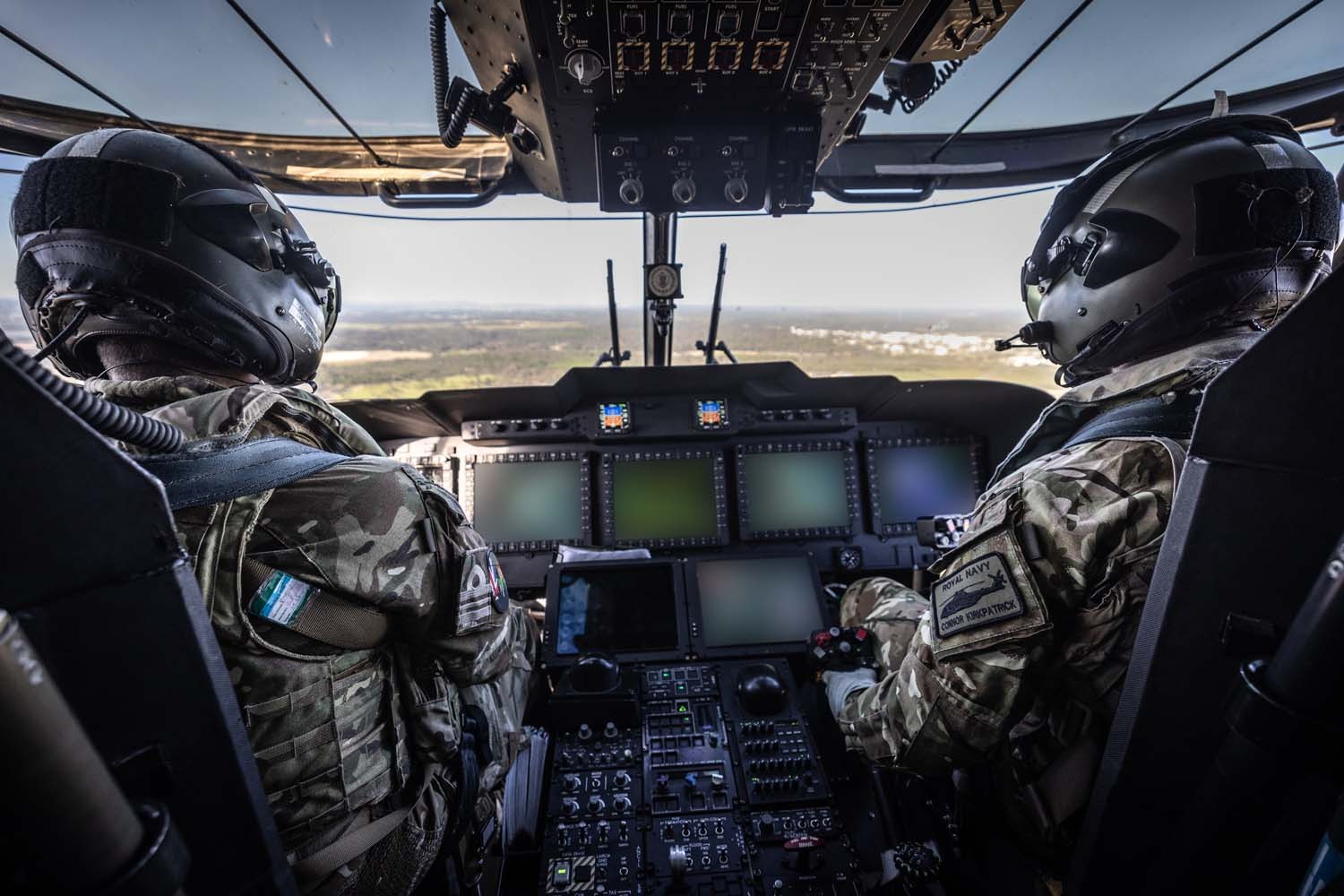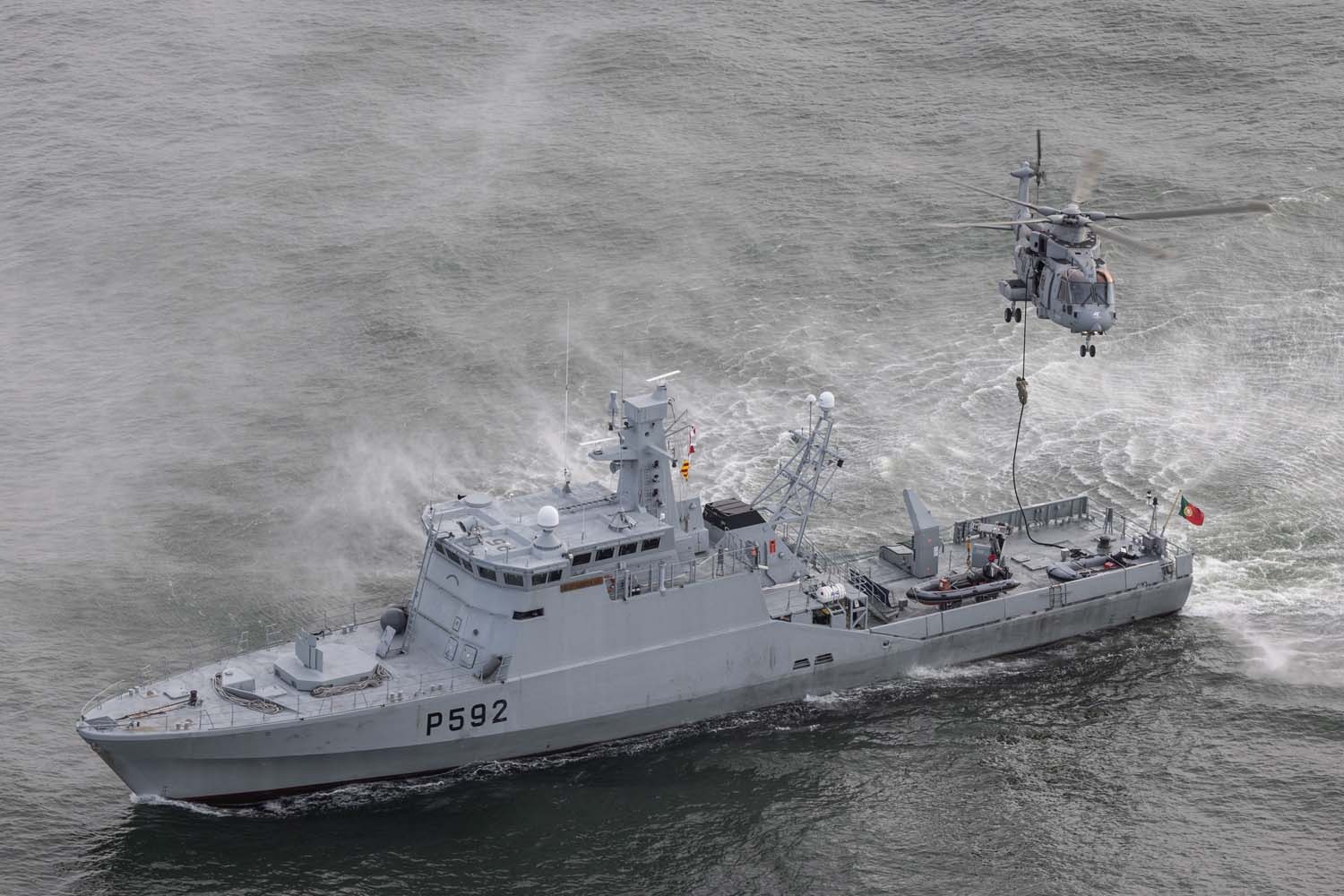Amid a series of assaults by the Houthis on commercial ships, the Royal Navy and Portuguese helicopters executed rapid and well-coordinated drills to reclaim control of a vessel seized by armed assailants.
In a recent joint training exercise off the coast of Portugal, Royal Navy and Portuguese helicopters, specifically the fliers of 846 Naval Air Squadron and the Portuguese 751 Squadron, conducted a successful operation to reclaim a Portuguese patrol ship from armed stowaways.
The Merlin helicopters, operated by both squadrons, executed an assault with troops fast-roping onto the deck, rescuing hostages, and regaining control of the ship.
This training initiative aimed to enhance the capabilities of the NATO allies in carrying out vital maritime interdiction operations.
This development is particularly significant against the backdrop of heightened maritime tensions, with the Houthis—an armed group supported by Iran and in control of a substantial portion of northern Yemen—utilizing drones and missiles to target commercial ships.
Lieutenant Commander David Houghton-Barnes, from M-Flight, the boarding operations experts of 846 Naval Air Squadron, emphasized the significance of the training, stating, “It was great training in a new environment that showed what is possible when specialists work together to achieve joint operations.”
The joint training extended over a three-week deployment of 120 members of 846 to Montijo Airbase, near Lisbon, challenging student aircrew and pilots across Portugal’s skies.

The training encompassed various missions, including dropping troops into action, carrying underslung loads, and simulating hostile engagements.
The Royal Navy said that the deployment, building on earlier collaboration in the summer, served to strengthen the ability of UK and Portuguese squadrons to operate seamlessly.
Commanding Officer of 846 NAS, Commander James Coleman, said, “Our partnership with 751 Squadron is a testament to the shared commitment to excellence and the pursuit of the highest standards in naval aviation training.”
He highlighted the invaluable experience gained by students, engineers, and supporting elements, which broadens deployment capabilities, enhances interoperability, and sharpens the collective ability to succeed in naval operations.
Growing Attacks On Merchant Ships
Over the past month, Houthi rebels, backed by Iran, have carried out more than 100 attacks on 12 different commercial vessels in the Red Sea. This wave of attacks, described by a senior US military official as a “significant breadth,” represents a level of aggression not witnessed in at least two generations.
Houthi militants have targeted or seized commercial ships on 12 occasions, with 25 crew members of the MV Galaxy Leader still held hostage in Yemen.
The surge in attacks on commercial ships in the Red Sea has also triggered urgent responses from the United States and its allies as they work together to secure this vital global trade route.
US Defense Secretary Lloyd J. Austin III announced the formation of a new multinational force on December 18.
This collaborative effort aims to address security challenges in the southern Red Sea and the Gulf of Aden, with the primary objectives of ensuring freedom of navigation for all nations and bolstering regional security and prosperity. The coalition will comprise armed forces from the United States, Britain, Bahrain, Canada, and France.

Under the proposed mission, military ships will not escort specific vessels but will be strategically positioned to provide overarching protection to as many ships as possible at any given time. This approach seeks to deter further attacks and enhance the security of the entire maritime corridor.
In response to this development, Mohammed Abdel-Salam, the chief negotiator and spokesperson for the Houthi rebels, challenged the US-led coalition on December 19, declaring the intention to persist in targeting vessels linked to Israel off the coast of Yemen.
Meanwhile, the severity of the situation has compelled significant shipping and oil companies to divert from the Suez Canal, a vital maritime passage for container ships and fuel tankers. This move could disrupt global trade and increase costs for imported goods.
The shipping giant Maersk has re-routed its ships away from the affected area. Despite welcoming the international security effort, Maersk has chosen to navigate its vessels around Africa through the Cape of Good Hope—a longer and less efficient route.
The company believes this alternative provides “more predictable outcomes” for its customers amid the current volatile situation in the Red Sea.
- Contact the author at ashishmichel@gmail.com
- Follow EurAsian Times on Google News




